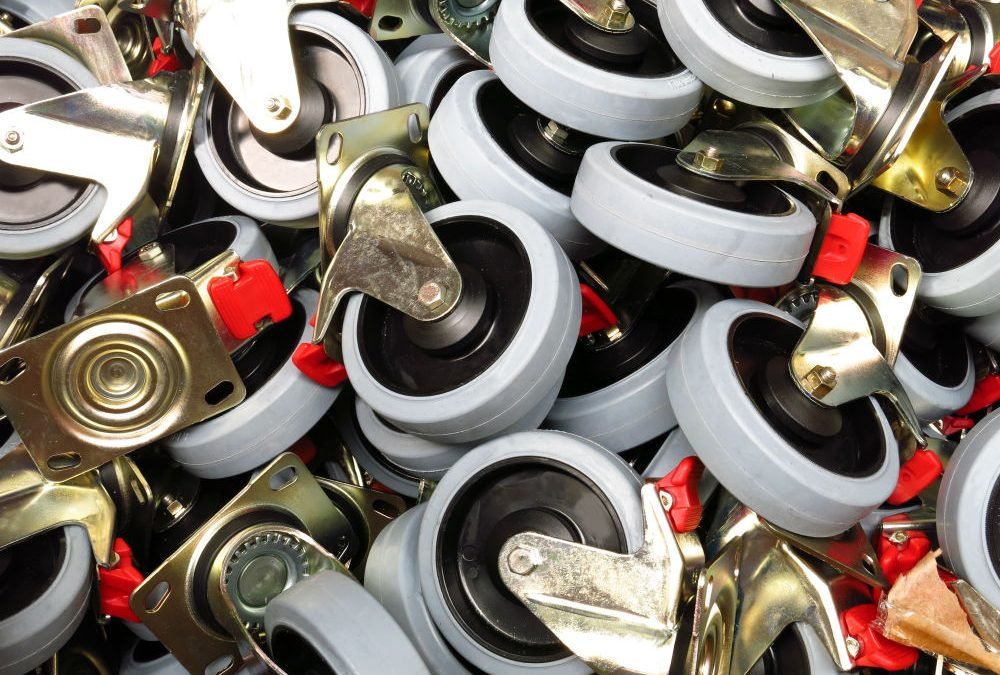When you think about wheels, rubber is one of the first things that probably pops into mind, and for a good reason. For almost a century, rubber compounds have been used for almost all automotive wheels.
Many don’t often think about wheels other than automotive wheels. In fact, the category of wheels is exponentially more diverse than what is offered simply for vehicles, and the requirements of these wheels are equally expansive. It covers several everyday applications from the wheels on your office chair to the wheels on a flight attendant’s drink cart.
In terms of materials, polyurethane has risen to the top as an indispensable choice for all sorts of wheel applications. They are even making their way into the automotive sector.
Let’s go over the key considerations why you should start using urethane wheels over the traditional rubber wheels.
Why Use Urethane Wheels?
Demanding and Diverse Environments
Steel and rubber have been the two common materials in wheel construction for some time. Why fix what’s not broken, right? Because of this polyurethanes have had an uphill battle when it comes to proving itself as a usable material for wheel applications.
This material amazing resistance to oils and chemicals has quickly made urethane wheels a clear choice in production. Harsh industrial environments in the mining sectors have adopted the use of urethane wheels as they do not degrade in the caustic environments that were typical in the mines of the past.
Resistance to moisture allows for solid urethane wheels to be of use for naval applications where conventional wheels would eventually rust over time. Bulk transport ships currently use urethane wheels on ship-deck doors due to their unparalleled resilience to seafaring environments.
The world’s largest elevators have used polyurethane wheels due to excellent shock absorbing properties and longevity. Are we changing your mind?
Broad Range of Customization
As a molded part, Polyurethane wheels can take on a limitless amount of shapes and sizes, and can perfectly be designed to suit any application. Hard polyurethanes make for great caster wheels that can support extreme loads, and also roll much quieter the steel equivalents.
Urethane wheels have been used in athletics for many years, and are present in many modern-day workout devices like weight machines, and elliptical trainers. Rollerblade and skateboard wheels are made almost exclusively from urethane for the last three decades.
Each of these applications requires a special profile given to the shape of the wheel and has been uniquely developed to perform as well as possible for each specific application. Softer compounds can be used for increased grip and shock-absorbing properties.
These materials can be produced in nearly any color making them a highly customizable option compared to alternative materials. Urethane wheels can bu used in high RPM applications and can be easily balanced if needed.
Urethane Outlasts Rubber
The superior chemical resistance of polyurethanes means they can excel in applications where rubber would quickly fail. Environments can contain harsh chemicals that degrade rubber, and for these operations, urethane is indispensable.
The diversity of the material allows for hard urethane hubs to be used in place of traditional metallic hubs, which is great for areas where metal contamination is detrimental. The paper and food industries have seen huge benefits by pursuing the implementation of polymer wheel solutions.
If you are interested in reducing downtime and increasing the reliability of your project consider using urethane wheels vs rubber wheels. They are the clear choice over rubber! Now that you know a few of the benefits of urethane wheels we hope we’ve made your decision that much easier come production time.


